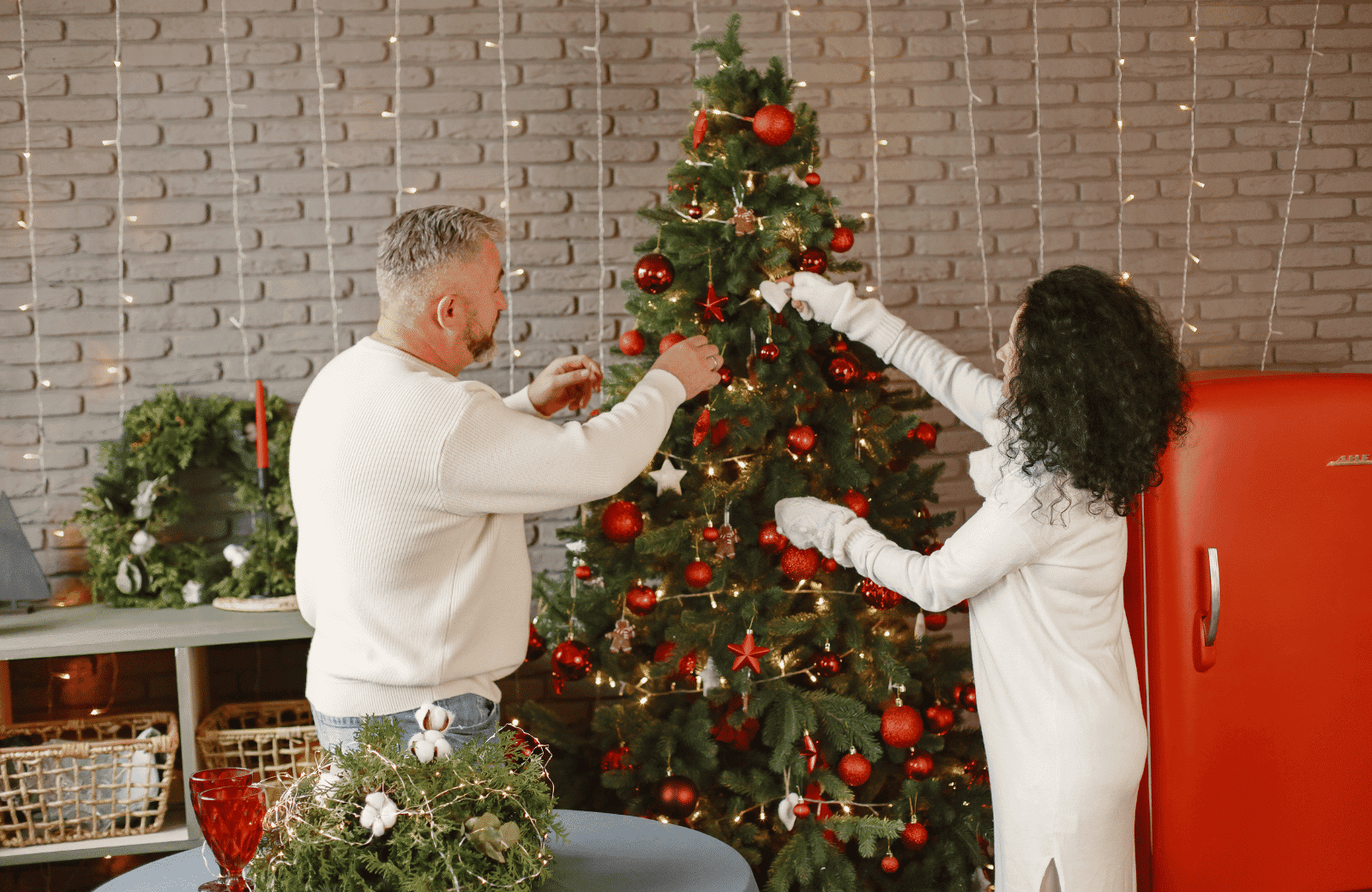Americans have opinions about when to hang Christmas lights for the holiday season. However, when to take them down is more of a debate.
Once Santa has come and gone, and you’re left with unwrapped gifts, picked-over dishes, and a guest-free home, you may be left thinking: “now what?” Your Christmas tree is still twinkling, and garland and tinsel remain in every nook of your living space. You aren’t alone if the evening of December 25 leaves you wondering when it’s time to pack up the fun.
We dove into the history of the Christmas holiday to find some answers. The following sections will help you decide when to take down your decor based on religious tradition, lore, and other modern considerations.
When to Un-deck the Halls, According to Tradition
If keeping decorations up after the holiday helps you chase away some of those post-Christmas blues, you’re in luck. According to Christian tradition, you should leave those baubles, trinkets, and lights on display until after the New Year.
Christmas is historically a 12-day-long celebration from December 25 to January 5. The fifth day of the new year is known as Twelfth Night because it marks 12 days since the birth of baby Jesus.
Why do people celebrate those well-known “12 days of Christmas?”
According to biblical history, that was the time it took the Three Wise Men to travel to Bethlehem to bestow their blessings upon the new baby. The Twelfth Day marks the arrival of the Three Kings to the nativity scene and the beginning of the Feast of the Epiphany.
Today, Roman Catholics, Lutherans, and other Western denominations celebrate Epiphany – also known as “Three Kings Day” – with a meal on January 6.
People often disassemble their trees and other holiday decorations on Epiphany to officially mark the end of the Christmas season. In fact, some believe that it’s bad luck to leave decor up past January 6.

You have one more traditional option if the week after New Year’s Eve still feels too early to empty your home of holiday cheer. Candlemas is a medieval English holiday that takes place exactly 40 days after Christmas on February 2. This holiday marks the blessing of the church’s candles for the upcoming year with a grand feast.
A 2021 article from English Heritage encourages people to enjoy the festive season a little longer by leaving their Christmas decorations up until Candlemas. But beware – if you avoided the bad luck of leaving your decor up past Epiphany, you should surely take it down by Candlemas. Medieval lore says those who leave decorations up past February 2 will become haunted by goblins.
Enjoy this verse from 17th Century poet Robert Herrick:
Ceremony Upon Candlemas Eve
“Down with the rosemary, and so
Down with the bays and mistletoe;
Down with the holly, ivy, all,
Wherewith ye dress’d the Christmas Hall:
That so the superstitious find
No one least branch there left behind:
For look, how many leaves there be
Neglected, there (maids, trust to me)
So many goblins you shall see.”
Finding a Tradition That Works for You
If you aren’t too worried about tradition, bad luck, or goblins, your decoration timeline is completely up to you. In short – the best time to take down your Christmas tree is the time that’s most convenient for your needs and schedule.
Some people prefer to un-deck their halls on Boxing Day (December 26) to wrap up the Christmas season and prepare for New Year’s Eve. Others like to leave decor up through the New Year holidays for a little extra cheer amongst all the ball drops and champagne toasts.
Tradition aside, you might wonder about the most socially acceptable time to dismantle your decor. In this case, asking friends when they plan to take down their Christmas trees or assessing your neighbor’s homes could provide an idea of common timelines.
Other Considerations
If you have a real tree or authentic greenery, you’ll want to check your area’s green waste recycling and pickup schedule. Many cities have tree drop-off locations and designated pickup days to keep green waste out of neighborhoods and landfills. Look online for your area’s pickup and recycling schedule for the upcoming year.
Keep an eye on the weather for the week following Christmas. If your area expects icy conditions or snowstorms, you’ll want to take your decorations down ASAP.

This will keep your outdoor decor from getting damaged and prevent you from being outside in dangerous conditions.
If you have many decorations to disassemble, consider taking them down in phases to simplify the process. Start your own 12 days of Christmas tradition in which you take down a few things every day leading up to January 6. You’ll finish the festive period with a stress-free, manageable cleanup project.
No matter when you decide to un-deck your halls, we hope you do so with excitement and anticipation of the coming new year. If cleaning up your Christmas decor leaves your home empty and bleak, consider decorating for other fun holidays throughout the year. With a little inspiration, you’ll find countless ways to create a space you love.












